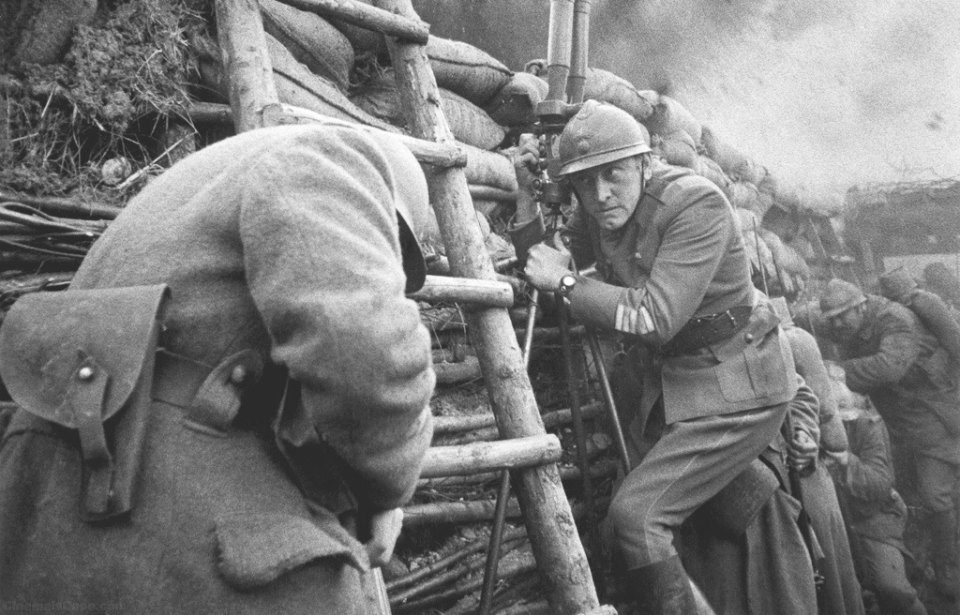War movies have always been one of the most popular genres of film and, for many years, they unambiguously portrayed their conflicts as noble. Renowned filmmaker Stanley Kubrick changed that with 1957’s Paths of Glory. The movie, which was loosely based on the story of French soldiers during World War I, was beset with both controversy and critical acclaim.
Paths of Glory was based on a novel
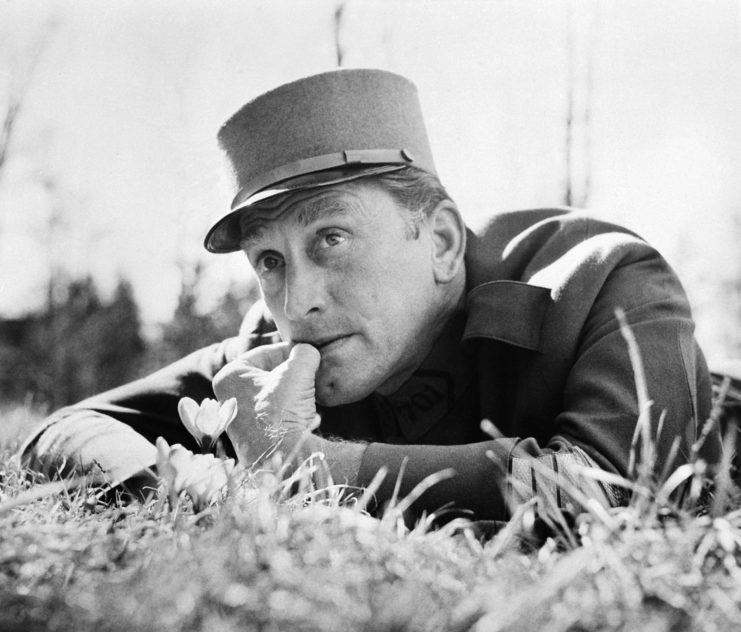
Stanley Kubrick‘s film was inspired by Humphrey Cobb’s Paths of Glory, which was published in 1935. Cobb, who lived in Italy, England and the United States as a youth, enlisted in the Canadian Army at just 17 years old and fought for three years during the First World War. Stationed on the frontlines, he fought in the Battle of Amiens in 1918.
Upon the conflict’s conclusion, Cobb moved to New York City, where he worked as a copywriter. It was during this time that he wrote Paths of Glory. The novel, which follows three French soldiers who are court-martialed and executed to save their senior commanders, is based on the Souain Corporals Affair of 1915, in which four French corporals were executed for cowardice, to set an example to others serving on the front.
Souain Corporals Affair
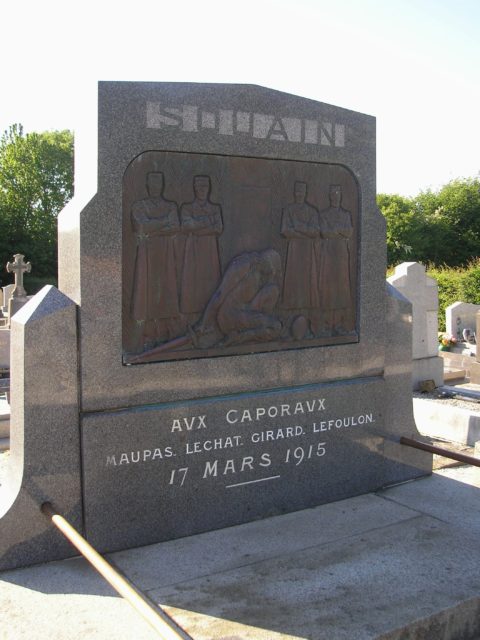
In March 1915, the French were locked in a fierce campaign against the Germans on the Western Front, near Souain. Several unsuccessful attempts were made to take positions away from the enemy, with many French soldiers dying after charging German positions, which were fortified with barbed wire and machine guns, with only their bayonets.
Executions followed the failed assault
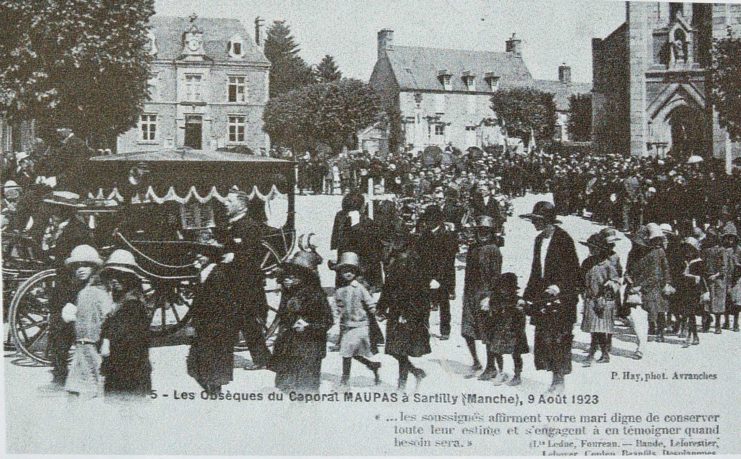
A tribunal was held on the basis of the French Army’s Code of Military Regulations, which stated that no appeal of the decision was allowed. The tribunal occurred on March 16, 1915, during which all 24 men were sentenced to death.
Reaction to Paths of Glory
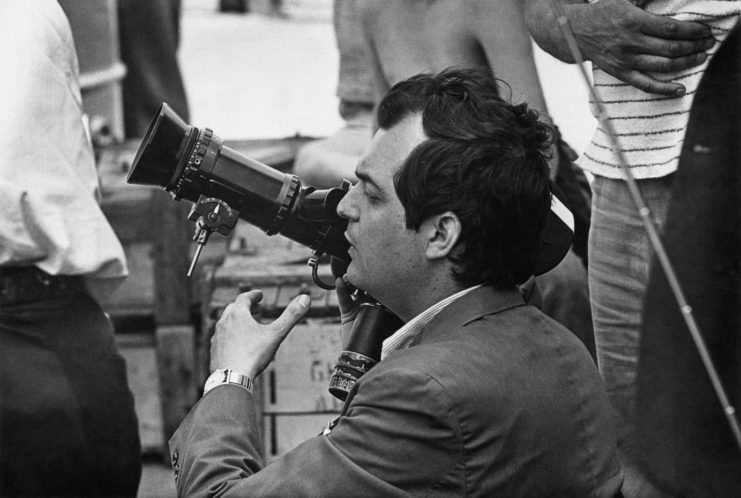
Paths of Glory was by no means a phenomenon when it hit theaters. The film was considered a modest financial success, making its money back. Following its release, critics agreed that Kubrick was an exceptional director and was destined for big things.
Legacy of the Souain Corporals Affair and Paths of Glory
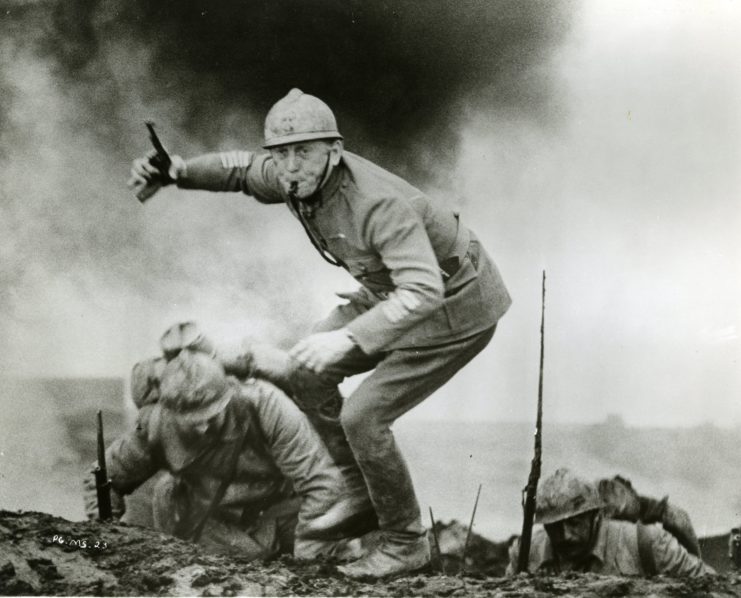
The French soldiers who stood up for themselves during the WWI assault are remembered much differently than they were over 100 years ago – and that change began before the book and movie were released. A monument honoring the four who were executed was erected in France in 1925, and upon their exoneration in 1934, their families received a symbolic franc for their hardship. In addition, they were given the ability to claim pension rights.
